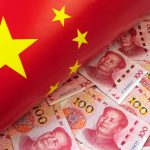How Does Free Zone Overseas Banking Work in China?23 min read
Reading Time: 9 minutesThe popularity of international overseas banking has grown recently because globalization speeds up and businesses seek to establish operations abroad. China’s special economic free zones have become major centers for international banking because of their relaxed regulatory environment and supportive business atmosphere.
The complexities of overseas banking in China’s free zones present significant challenges to those who lack familiarity with the Chinese financial system.
Our guide will explain the mechanics of overseas banking within China’s free zones while highlighting the benefits it presents to both domestic and foreign investors.
Chinese companies’ expanding efforts to create global operations necessitate an increased understanding of international banking systems.
While domestic banking operations continue to serve an essential function, numerous organizations benefit from international banking services available in China’s free trade zones.
Businesses today experience enhanced simplicity in executing cross-border financial activities while they extend their operations internationally.
How Does Overseas Banking Operate Within China’s Free Zones?
China’s free trade zones operate as special administrative regions with more relaxed economic laws than the rest of China. These zones aim to draw foreign investment through implementing trade and investment policies that align with international standards.
Free zones allow both domestic businesses and foreign-invested enterprises to conduct financial activities in foreign currencies because they can open accounts and perform transactions such as cross-border transfers without restrictions.
China implements comprehensive restrictions on the conversion and transfer of Chinese yuan across its national borders except within China free zone overseas banking areas.
Licensed foreign banks such as The Kingdom Bank are allowed to open branches in free zones to deliver comprehensive international banking services.
Financial services such as deposits, loans and wealth management along with treasury and trade finance operations use major international currencies like USD, EUR and GBP instead of CNY.
By operating in foreign banks based in free zones, companies can avoid China’s capital restrictions through an integrated offshore banking system that functions within China’s domestic borders.
Businesses choose to keep their deposits in foreign locations instead of mainland China to shield themselves from the risks associated with currency fluctuations and government interference which could affect China’s domestic financial system.
What Makes China’s Free Zones Attractive for Overseas Banking?
Multiple fundamental elements contribute to the strong appeal of China’s free zones for international banking operations.
- The free zones operate with more relaxed foreign exchange rules which enable complete offshore banking operations unlike other Chinese regions.
- Companies operating within free zones benefit from reduced corporate income tax rates and exemptions from import/export duties along with additional tax holidays.
- Overseas bank account in free zone China services are particularly appealing because these zones are near China’s top consumer and manufacturing areas, such as Shanghai, Guangzhou, and Tianjin.
- Free zones can stand toe-to-toe with other Asian financial centers because of their modern transportation infrastructure along with their access to global talent and state-of-the-art facilities.
- Free zone banks maintain their offshore advantages yet serve as crucial entry points for business operations and investments in mainland China.
The combination of a regulated yet flexible financial environment and appealing operating conditions has turned free zones into ideal locations for overseas banks serving both local and international customers.
Are Foreign Investors Allowed to Access Overseas Banking in China?
Foreign investors obtain full authorization to create and operate online overseas bank accounts by utilizing banking institutions situated in China’s free trade zones.
Many key overseas banks which pursue clients in these zones operate as foreign-owned institutions with their headquarters located offshore including banks such as The Kingdom Bank.
Investors who operate legally through free zones face no constraints when accessing offshore financial services ranging from basic transaction facilities to sophisticated wealth management options.
Investors can transfer money without restrictions between their foreign accounts and accounts at Chinese free zone banks.
Funds deposited in offshore free zone bank accounts stay outside China’s official banking system because they operate under foreign jurisdiction instead of Chinese control.
Investors must use authorized foreign exchange channels since deposited foreign currencies cannot be directly converted to mainland Chinese yuan.
Free zone banking operations enable foreign companies and individuals to access China’s expanding economic market while maintaining the protective financial environment of a real offshore banking center.
What are the Main Benefits of Using Overseas Banking in Chinese Free Zones?
Overseas banking operations in Chinese free zones offer significant benefits that appeal to local Chinese enterprises as well as international multinationals operating within China.
Currency diversification and hedging
The partial international conversion of the yuan in China enables firms to use overseas bank accounts to maintain cash reserves in several major foreign currencies which helps to reduce exchange rate risk. Holdings can also be hedged against volatility.
International payments and collections
Free zone banks offer worldwide cross-border funds transfers and settle import/export transactions alongside supplier payments through their extensive global time zone reach and integrated payment networks.
Trade finance and supply chain support
Companies benefit from letters of credit, guarantees, financing and cash management services which streamline their import/export operations while helping them make payments to global vendors or collect incoming funds.
Access to global capital markets
Free zone banks collaborate with their international parent networks to provide access to offshore equity and debt fundraising and treasury investments along with additional capital market activities which remain inaccessible onshore.
Privacy and asset protection
Sensitive financial information and intellectual property receive enhanced protection under stricter confidentiality laws in offshore jurisdictions compared to China. The funds remain protected from any domestic political or economic disturbances.
Tax planning opportunities
International tax burdens can be optimized through tax treaties between China and other nations along with free zone tax incentives.
The company presents a compelling value proposition by enabling authentic offshore banking operations from within China through its innovative free trade zones.
How is Overseas Banking in China Regulated by the Government?
China’s state-run system means that overseas banking within free zones remains controlled by government entities including the People’s Bank of China (PBOC).
- The People’s Bank of China allows only licensed foreign banks with its approval to set up branches that provide offshore financial services in free zones.
- Client on-boarding and transaction monitoring must adhere to stringent know-your-customer (KYC) and anti-money laundering (AML) regulations to deter illegal activities.
- The transfer of money between domestic and international accounts requires official authorization and includes currency exchange limits alongside mandatory documentation.
- Free zone bank branches must stay separate from domestic systems according to annual audits and maintain international accounting standards.
- Foreign bank subsidiaries must comply with prudential standards that include capital adequacy requirements as well as liquidity protocols and limits on large exposure alongside other risk management regulations.
- Data localization policies require client information to be stored on local servers for regulatory access even though it operates under offshore pretenses.
The Kingdom Bank’s integrated free zone branches serve as a top choice for entities aiming to benefit from China’s economic growth while managing risks through offshore infrastructure.
The Kingdom Bank provides a network across Asia’s economic centers to unite domestic and global clients with China’s expanding private and corporate wealth while maintaining strict banking principles of privacy and stability and focusing on client service.
For detailed information on establishing an online overseas bank account to support your China investment plans or expansion projects go to The Kingdom Bank’s website or connect with one of our multilingual relationship managers today.
Although navigating China’s financial terrain can be challenging, the complexity can be simplified by finding the right offshore partner to open an overseas banking account in China free zone and seize fresh opportunities.
What are the Legal Requirements for Overseas Banking in China’s Free Zones?
The legal framework governing overseas banking operations within China’s free trade zones differs from traditional domestic banking regulations.
Free zones function as unique economic regions which offer reduced regulatory barriers to stimulate international trade and investment activities.
To legally operate an overseas banking account in one of China’s free trade zones account holders must meet essential requirements.
- The applicant must register for an overseas bank account in China free zone as a legal entity operating within the zone.
- The business should present documentation showing its involvement in global trade activities and cross-border investments.
- The account holder must designate an authorized administrator to handle foreign exchange transactions.
Overseas banking accounts within China’s free trade zones exclusively handle transactions through foreign currencies rather than the Chinese yuan.
Standard operating currencies in free zone overseas banking operations include US dollars, Euros, Hong Kong dollars and Japanese yen.
China’s free trade zones each maintain their unique documentation and approval procedures that exhibit slight differences. Complying with free zone regulations simplifies the establishment of international overseas banking in China free zone accounts.
How Do I Open an Overseas Banking Account in China?
Since the legal framework is now understood, we can begin exploring the practical steps necessary to establish an overseas banking account within China’s free trade zones.
Start the process by contacting a bank with authorization to operate international banking services in your specific free trade zone.
Customers often select international private banks such as The Kingdom Bank to satisfy their international banking requirements.
Set up a session with a relationship manager to evaluate your business profile and determine your banking needs. The bank will instruct you on how to submit essential documents which comprise your organizational articles and business licenses as well as proof of commercial activities.
Following initial approval, you need to make your first deposit in the foreign currency you choose. Opening an account requires an initial deposit amount that can range from $10,000 to $50,000 depending on both the bank and the specific account type.
Complete Know Your Customer (KYC) verification by submitting your identification documents. Users will have access to cross-border transactions as soon as their account is activated.
Customers can manage their finances through mobile banking services that banks offer when they are not at their computers.
Annual maintenance fees will vary between $100 and $500 depending on your account balance and transaction volume. The convenience offered by overseas banking services validates the minor fees that banks charge for these accounts.
Can Businesses Use Overseas Banking in China for Cross-Border Transactions?
The main advantage of opening an overseas bank account in China’s free zones lies in enabling businesses to manage cross-border transactions.
International accounts deliver secure avenues for companies to handle cross-border payments as well as trading and investment activities.
Companies frequently use free zone overseas banking for multiple operational functions.
- Businesses utilize free zone overseas banking accounts as financial conduits for receiving and sending international wire transfers using different currencies.
- Paying overseas suppliers, vendors, and service providers
- Collecting revenue from international customers
- Engaging in cross-border e-commerce and online sales
- Facilitating foreign investment and joint ventures
- Through overseas banking companies can manage their import/export transactions together with customs duty payments.
International partners achieve more efficient financial transactions when they choose to use foreign bank accounts instead of conducting transfers in yuan. This solution removes currency exchange barriers while simplifying compliance with China’s foreign exchange surveillance rules.
Businesses that engage in cross-border operations find the specialized international banking channel an advantageous option.
Companies achieve greater transaction efficiency and reduced costs by removing currency exchange workarounds.
What Types of Accounts are Available for Overseas Banking in China?
You need to understand all available account types before choosing an overseas account. Financial institutions that operate within free trade zones usually provide multiple international account options.
- Savings Accounts enable customers to store their money and earn interest over time. This account functions as a reserve resource while supporting working capital fund management.
- Checking/Current Accounts facilitate day-to-day transactions and payments. This account offers users the ability to execute transactions through checks, debit cards and wire transfers.
- Customers who choose Time Deposit Accounts must lock their funds in place for a set term between three to six months to benefit from increased interest rates. Ideal for short-term investments.
- An escrow account stores financial assets in a third-party account until all contractual conditions have been met. Common in real estate and mergers/acquisitions.
- Multi-Currency Accounts enable users to handle various international currency balances through one account enhancing their flexibility. Exchange rates apply for conversions.
Wealthier clients have access to specialized financial services from premium private banks like The Kingdom Bank which offer securities accounts and deposit structures along with trust and estate planning solutions.
Conduct exhaustive research to determine the best possible choice that meets your individual requirements.
How Secure is Overseas Banking in China’s Free Trade Zones?
All companies must safeguard their international financial holdings and information to prevent potential security risks. Banks operating in China’s free trade zones enforce stringent security protocols that align with global standards.
Chinese regulatory authorities conduct comprehensive assessments and hands-on inspections for every international bank that receives approval.
Approved overseas banks have to demonstrate technological protection proficiency and staff training adequacy together with anti-money laundering compliance.
Specific security layers commonly seen include:
- Military-grade encryption of online banking platforms
- Multi-factor authentication for logins including biometrics
- Real-time transaction monitoring for fraud detection
- Regular external audits of infrastructure and processes
- Strict data privacy and customer information protection
- FDIC/SIPC-equivalent deposit insurance on accounts
National governance maintains the operational framework for China’s free trade zones. Overseas banking accounts preserve access to the legal protections of mainland China alongside its political stability and resources for dispute resolution.
While no system is infallible, reputable banks such as The Kingdom Bank ensure the security of overseas banking in China by adhering to international best practices.
Chinese companies seeking to extend their global business footprint can find a secure and standard-compliant banking platform through free zone overseas banking.
Private banks such as The Kingdom Bank provide specialized international financial services that businesses use to manage payment processing and currency investments through international accounts.
International businesses with ongoing cross-border operations should evaluate this banking solution in China’s free trade zones due to its excellent convenience.
Contact a The Kingdom Bank specialist today to learn about creating a customized overseas account package that matches your company’s unique requirements and aids your international expansion objectives.
About The Author







